
(RNS) — In an often-tense election year, a number of the books RNS featured in 2024 dealt with politically charged faith topics. Some, such as Amanda Tyler’s and Matthew D. Taylor’s explorations of Christian nationalism and Joshua Leifer’s breakdown of American Judaism’s embrace of Zionism, called out actors and institutions the authors perceived as bending religion toward political ends.
Then there were the books that looked to the past to better understand the present, examining the evolution of the sanctuary movement, introducing little-known Christian anti-racists and exposing how earlier politicians fostered enmity between poor white folks and their poor Black peers. Eliza Griswold’s profile of an evangelical church riven by discord post-2020, and Greg Epstein’s observations about how artificial intelligence has become a religion unto itself, offer lessons about how to avoid worshipping the wrong thing.
The more reflective offerings, including J.S. Park’s book on grief and Cole Arthur Riley’s “Black Liturgies,” offer space for whatever readers might be feeling at the end of an exhausting year — rage, despair, joy, hope. So whether you’re seeking a how-to guide for addressing poverty or prayers about the sacredness of the human body, our year-end booklist has you covered.
“The Widening of God’s Mercy” by Christopher and Richard Hays
For decades, New Testament professor Richard’ Hays’ “The Moral Vision of the New Testament” has been embraced as a theological asset by conservative Christians who condemn homosexuality. But in a stunning reversal, Hays, along with his son, Fuller professor Christopher Hays, released “The Widening of God’s Mercy” this September, which argues that God is dynamic, personal and extends grace to outsiders. In arguing for the full inclusion of LGBTQ people within the Christian fold, this book sent shock waves throughout the Christian world that continue to be felt. Read more about this book.
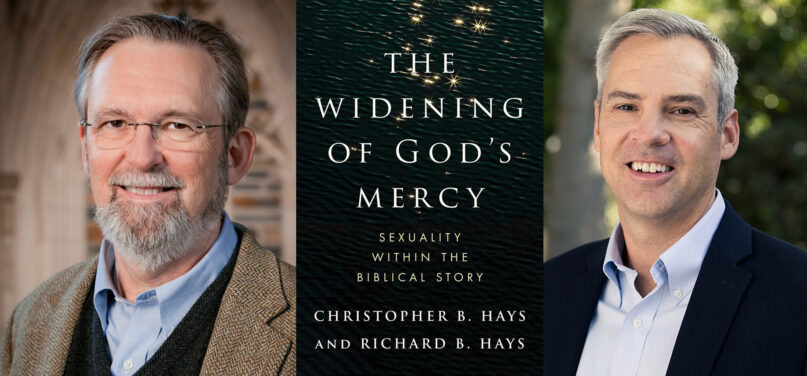
“The Widening of God’s Mercy: Sexuality Within the Biblical Story” by Richard B. Hays, left, and Christopher B. Hays, right. (Photos courtesy of Duke Divinity School, left, and Fuller Theological Seminary, right)
“Sanctuary People: Faith-Based Organizing in Latina/o Communities” by Gina Pérez
At a time when the sanctuary movement is under threat, Gina Pérez’s book looks at how the practice of sanctuary, where faith-based organizations shelter refugees and migrants, has evolved to include aiding victims of police violence and hurricanes. A cultural anthropologist and a Roman Catholic, Pérez spent four years researching sanctuary practices in Ohio and on the national level as Latino/a communities faced increased displacement, surveillance and marginalization. Read more about this book.
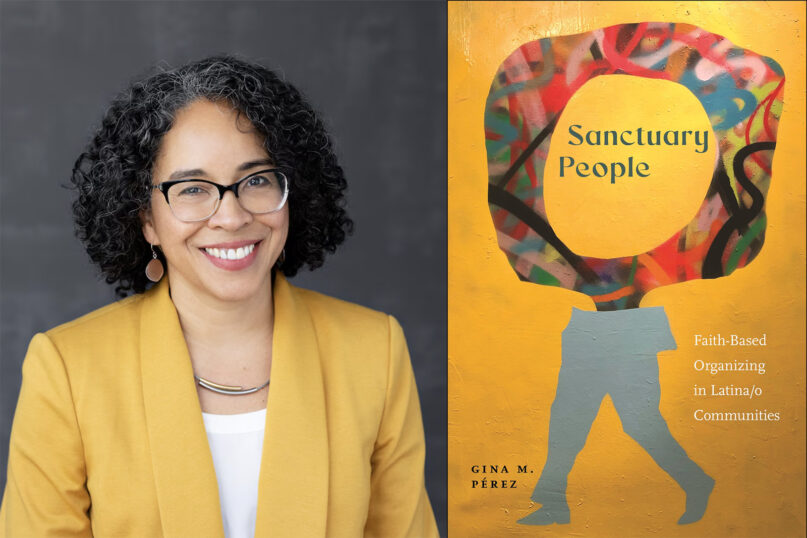
“Sanctuary People: Faith-Based Organizing in Latina/o Communities” and author Gina Pérez. (Courtesy images)
“Tablets Shattered: The End of an American Jewish Century and the Future of Jewish Life” by Joshua Leifer
Joshua Leifer’s historical account of American Judaism argues that Zionism has become so central to American Jewish life that it’s superseded the faith itself. A journalist and Ph.D. candidate in history at Yale University, Leifer says the leading religious Jewish establishment organizations have traded championing equal rights for support for Israel, even as liberal Jewish traditions have failed to put forward a viable alternative to Zionism. “Now that Israel is not a source of moral inspiration, but a place that many don’t want to be associated with, or that they’re ashamed of, because of what it’s doing, American Jewish identity is facing a crisis,” he told RNS. Read more about this book.
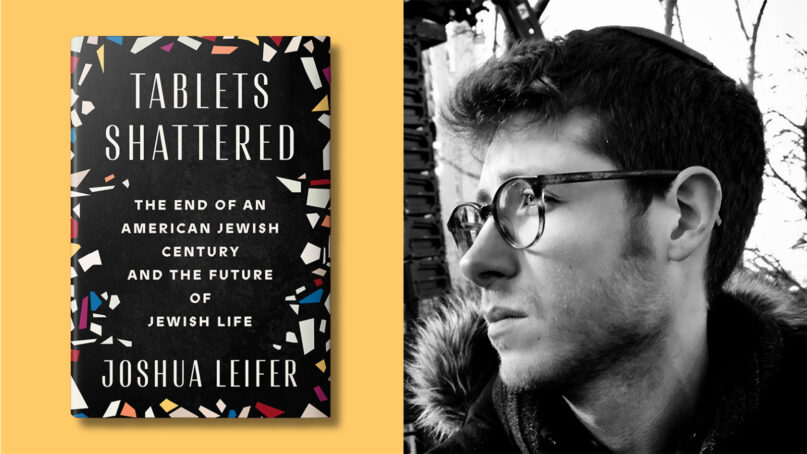
“Tablets Shattered: The End of an American Jewish Century and the Future of Jewish Life” and author Joshua Leifer. (Courtesy images)
“Black Liturgies: Prayers, Poems, and Meditations for Staying Human” by Cole Arthur Riley
In the wake of George Floyd’s murder, liturgies written by long-dead white men weren’t cutting it for author Cole Arthur Riley. So she crafted her own liturgies that centered Black experiences, bodies and emotions. To her surprise, her prayers and poems have since resonated with hundreds of thousands of people who have followed Riley’s Black Liturgies Instagram account. Her latest book is a powerful physical artifact of that project. Read more about this book.
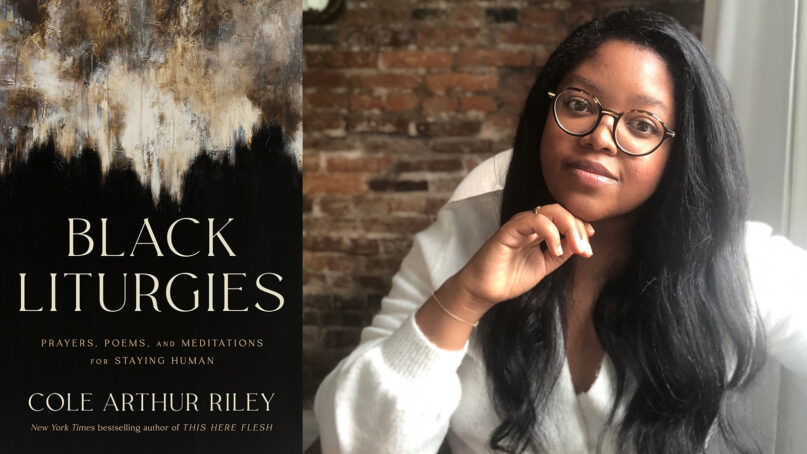
“Black Liturgies: Prayers, Poems, and Meditations for Staying Human” and author Cole Arthur Riley. (Courtesy images)
“Circle of Hope: A Reckoning With Love, Power, and Justice in an American Church” by Eliza Griswold
An immersive account of an evangelical church in Philadelphia striving to embody Jesus’ ministry, “Circle of Hope,” from Pulitzer Prize-winning author Eliza Griswold, offers an up-close look at the splintering of American churches. Based on four years of reporting and over 100 interviews, the book is a portrait of a church gasping for survival amid theological clashes, political discord and financial strain — and it’s an invitation to consider how the church might make itself new. Read more about this book.

“Circle of Hope” and author Eliza Griswold. (Photo by Seamus Murphy)
“Tech Agnostic: How Technology Became the World’s Most Powerful Religion, and Why It Desperately Needs a Reformation” by Greg Epstein
From the humanist chaplain at Harvard University and Massachusetts Institute of Technology, “Tech Agnostic” argues that technology itself, and especially artificial intelligence, has become a global object of worship, complete with its own rituals, adherents and papal figures such as Elon Musk. But Greg Epstein urges readers to be skeptics of tech innovation and to consider how to engage with technology in a way that serves humanity, rather than conditioning humanity to venerate technology. Read more about this book.
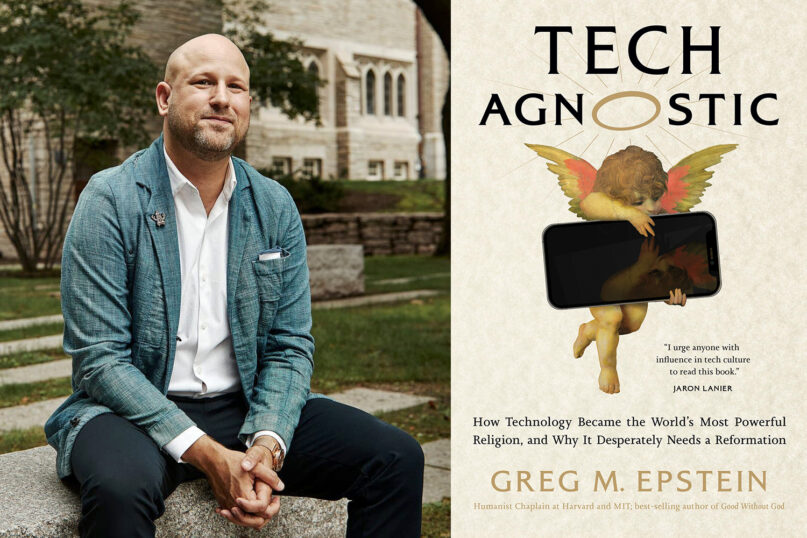
“Tech Agnostic: How Technology Became the World’s Most Powerful Religion, and Why It Desperately Needs a Reformation” and author Greg M. Epstein. (Courtesy images)
“The Violent Take It by Force: The Christian Movement That Is Threatening Our Democracy” by Matthew D. Taylor
Matthew D. Taylor’s book offers an unflinching exploration of the New Apostolic Reformation, an often overlooked but highly influential segment of the religious right that champions Donald Trump as a God-ordained leader at the center of a large-scale spiritual battle. The book aims to show how the movement has steadily infiltrated mainstream politics and played a key role on Jan. 6, 2021. Taylor’s analysis is also a warning about the consequences of a Christianity galvanized by a vision of Christian America. Read more about this book.
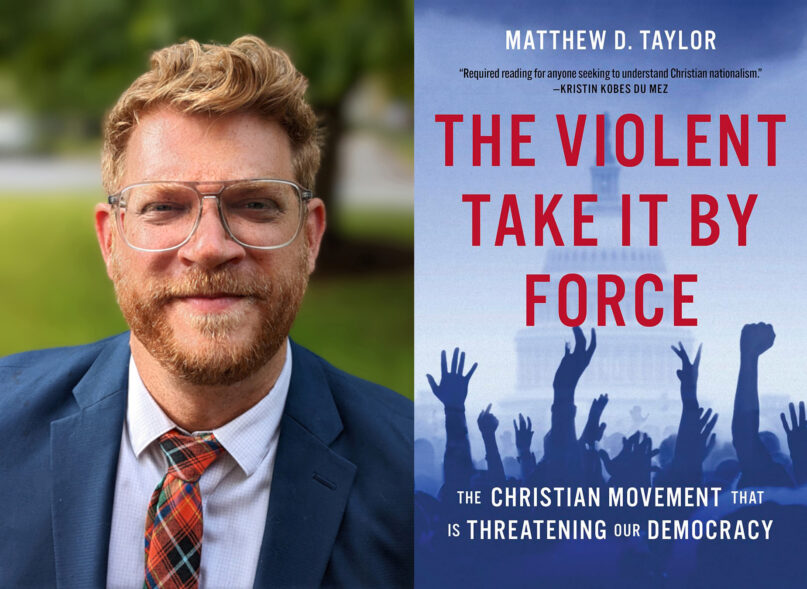
“The Violent Take It by Force: The Christian Movement That Is Threatening Our Democracy” and author Matthew D. Taylor. (Courtesy images)
“As Long As You Need: Permission to Grieve” by J.S. Park
As an interfaith chaplain at a Level 1 trauma center, J.S. Park is all too familiar with the most unhelpful ways people of faith respond to tragedy. In his latest book, he draws on nearly a decade of accompanying people on the worst day of their lives to outline an approach to grief that is less about letting go and moving on, and more about letting in and moving with. Read more about this book.

“As Long as You Need: Permission to Grieve” and author J.S. Park. (Courtesy images)
“White Poverty: How Exposing Myths About Race and Class Can Reconstruct American Democracy” by William J. Barber II and Jonathan Wilson-Hartgrove
Longtime civil rights champion the Rev. William Barber II is known for his impassioned advocacy for the Black community. But as an anti-poverty activist, he is weary of political tactics that pit poor Black Americans against poor whites. His latest book, co-authored with Christian preacher Jonathan Wilson-Hartgrove, invites poor people of all races to join in the battle for better living conditions. Read more about this book.

“White Poverty: How Exposing Myths About Race and Class Can Reconstruct American Democracy” and authors the Rev. William Barber II and Jonathan Wilson-Hartgrove. (Photos by Franklin Golden, left, and Pilar Timpane)
“Dictates of Conscience: From Mormon High Priest to My New Life as a Woman” by Laurie Lee Hall
Before a gender transition, Laurie Lee Hall joined The Church of Jesus Christ of Latter-day Saints as a college student drawn to the church’s religious teachings and strong community. Years after becoming a stake president and architect for the church’s temple building program, Hall came out as a trans woman. Her memoir, released in the wake of the church’s new hard-line policies on transgender members, tells the story of what she lost and gained by embracing her gender identity. Read more about this book.
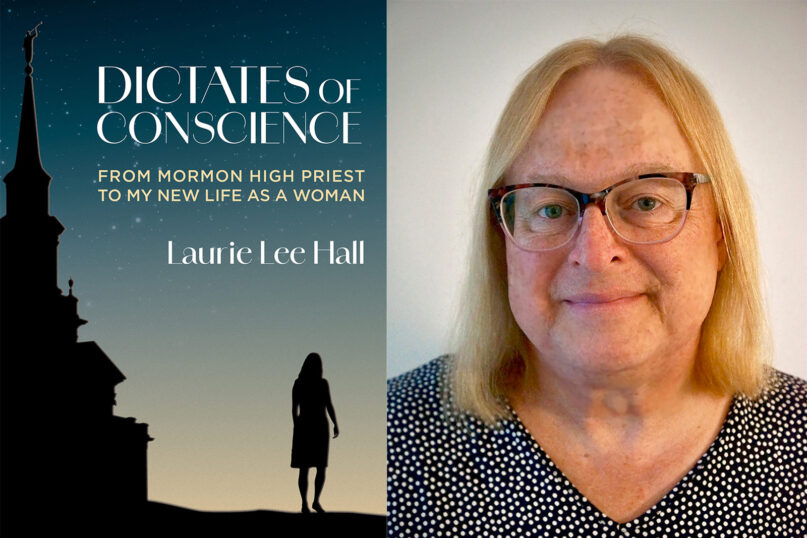
“Dictates of Conscience” and author Laurie Lee Hall. (Author photo by David Beaman)
“Ghosted: An American Story” by Nancy French
Once a best-selling ghostwriter for conservative politicians, Nancy French was cut off by her peers when she and her husband criticized Donald Trump. French nevertheless remains confident in her faith in God, even if she feels distant from the church. Her memoir, “Ghosted,” which she wrote while being treated for cancer, traces her surprising journey from her childhood in Appalachia to her post-Trump life. Read more about this book.
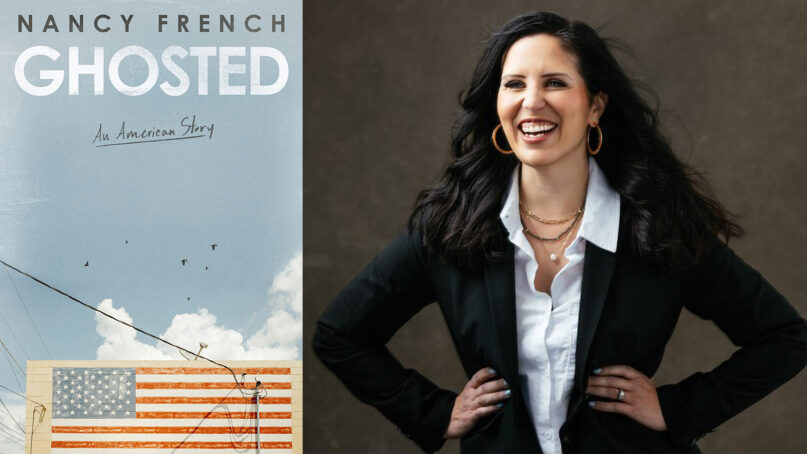
“Ghosted” and author Nancy French. (Courtesy images)
“The Spirit of Justice: True Stories of Faith, Race, and Resistance” by Jemar Tisby
In his latest book, historian Jemar Tisby platforms over 50 little-known Christian historical figures, most of them Black and many of them women, who advocated against racism through the centuries. His survey inspires Christians of today to follow the footsteps of those whose faith galvanized their work for liberation and equality. Read more about this book.
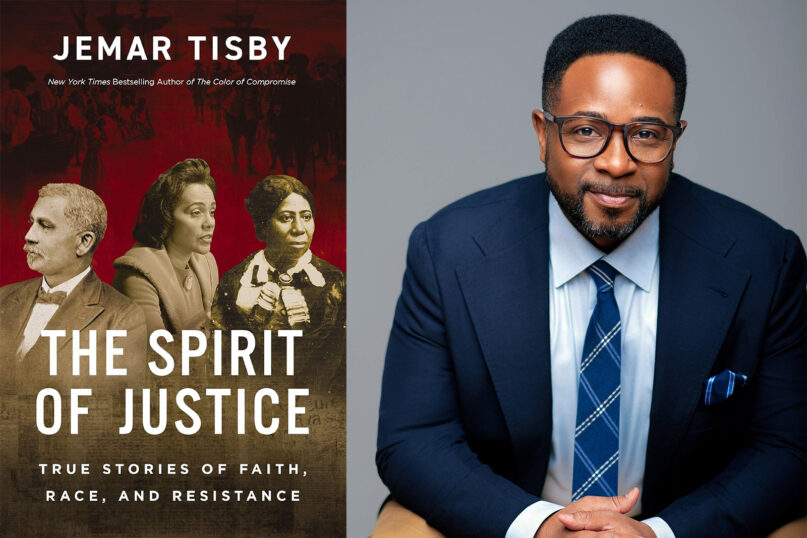
“The Spirit of Justice: True Stories of Faith, Race, and Resistance” and author Jemar Tisby. (Courtesy images)
“How to End Christian Nationalism” by Amanda Tyler
As Christian nationalism becomes an increasingly ubiquitous and provocative term, many have struggled to distill what exactly it is, what it looks like and how to confront it. Enter attorney Amanda Tyler, lead organizer of the Baptist Joint Committee’s Christians Against Christian Nationalism campaign. Her book is a guide for understanding and dismantling Christian nationalism in your home and church, and on a political scale. Read more about this book.
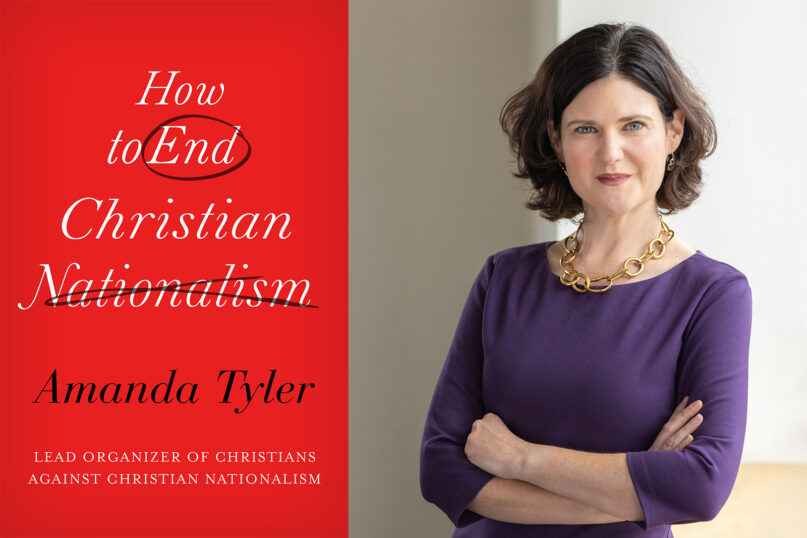
“How to End Christian Nationalism” and author Amanda Tyler. (Courtesy images)
“The Contemporary Black Church: The New Dynamics of African American Religion” by Jason Shelton
Is the Black church dead? The answer depends, according to sociologist Jason Shelton, on what traditions you’re talking about. Using extensive empirical data, Shelton tracks the ways African American religion is shifting and observes the political implications. “Who speaks for the poor?” Shelton asked in an RNS interview. “The Black church has spoken for the poor.” Read more about this book.
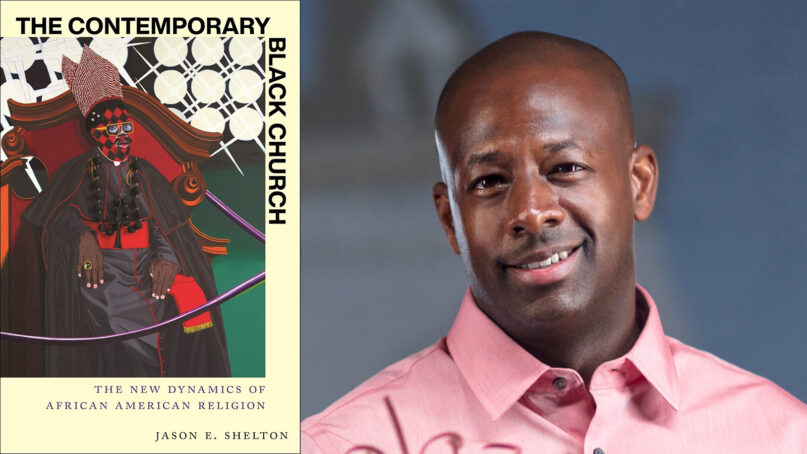
“The Contemporary Black Church: The New Dynamics of African American Religion” and author Jason Shelton. (Photo by Justin Clemons)
2024 Books by RNS authors:
“Jannah: Home at Last” by RNS columnist Omar Suleiman
Islamic scholar and civil rights activist Omar Suleiman’s book is an exploration of Jannah — not only what Muslims can expect in the eternal paradise, but how they can enter it. His latest release includes spiritual resources for being welcomed into Jannah and fresh perspective on the discomfort of this life.
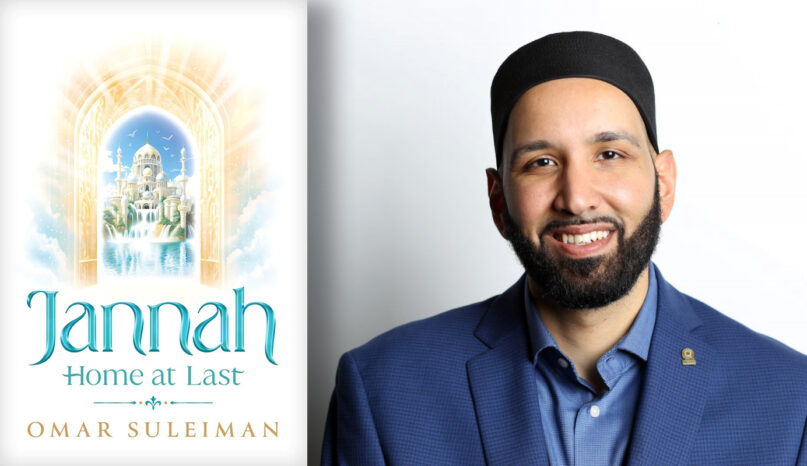
“Jannah: Home at Last” and author Omar Suleiman. (Courtesy images)
“Becoming a Future-Ready Church: 8 Shifts to Encourage and Empower the Next Generation of Leaders” by RNS Projects Editor and National Reporter Adelle M. Banks, Daniel Yang and Warren Bird
Adelle Banks teamed up with church researcher Warren Bird and pastor Daniel Yang on this guidebook for churches looking to effectively prepare for the future. Using case studies and analysis of current trends — including the declining percentage of American Christians, growing mental health crises and increased skepticism toward institutions — the book is filled with practical tools and hope-filled wisdom.
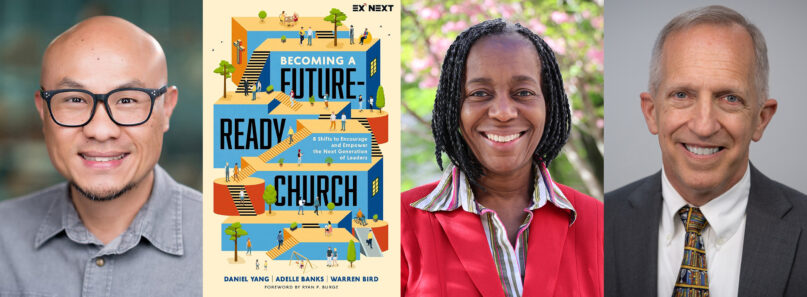
“Becoming a Future-Ready Church: 8 Shifts to Encourage and Empower the Next Generation of Leaders” by Daniel Yang, from left, Adelle M. Banks and Warren Bird. (Courtesy images)
“My Guncle and Me” by RNS columnist Jonathan Merritt
This children’s book about self-acceptance from evangelical Christian writer Jonathan Merritt is the book he wishes he’d had as a child. As the son of a former Southern Baptist Convention president, he was raised to believe being gay and being a faithful Christian were contradictory. Not so in this book, where the proud guncle (gay uncle) sings and prays in church. Read more about this book.
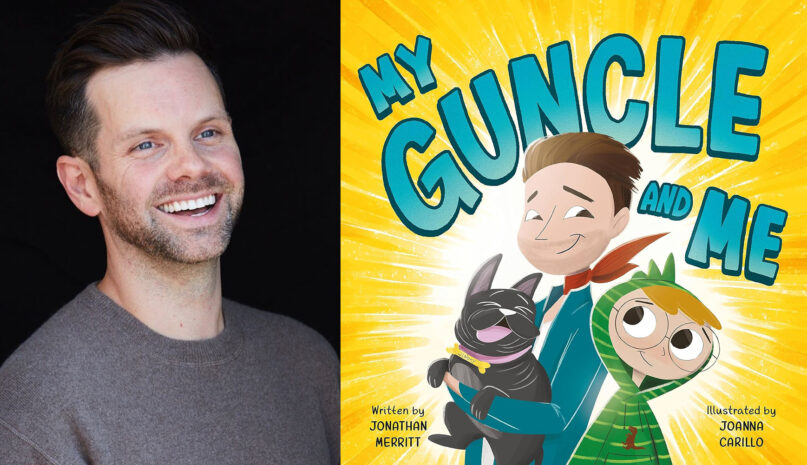
“My Guncle and Me” and author Jonathan Merritt. (Courtesy images)
“Sacred Silence: Daily Meditations for Lent” by RNS columnist Phyllis Zagano
Phyllis Zagano, one of the foremost scholars on Catholic women’s ministry, published a series of Lenten meditations this spring. Focused on guiding readers in silent reflections in the midst of a hectic world, the book includes more than 30 reflections for the Lenten season.
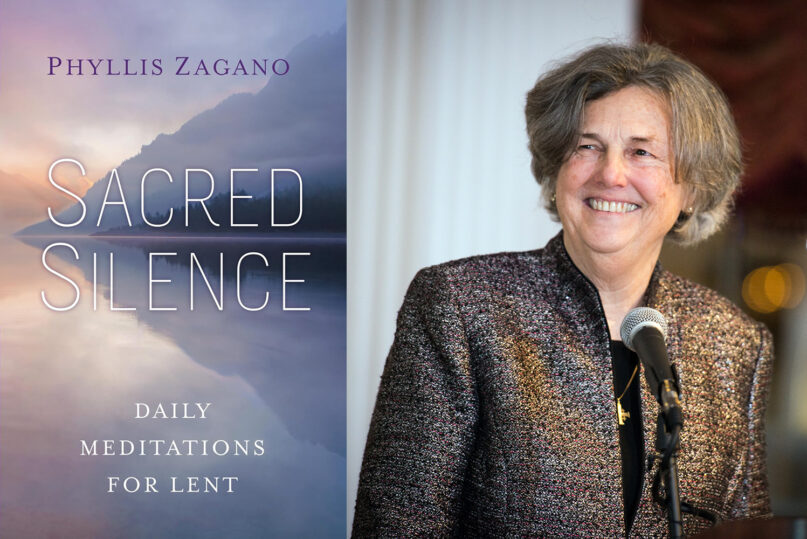
“Sacred Silence: Daily Meditations for Lent” and author Phyllis Zagano. (Courtesy images)
